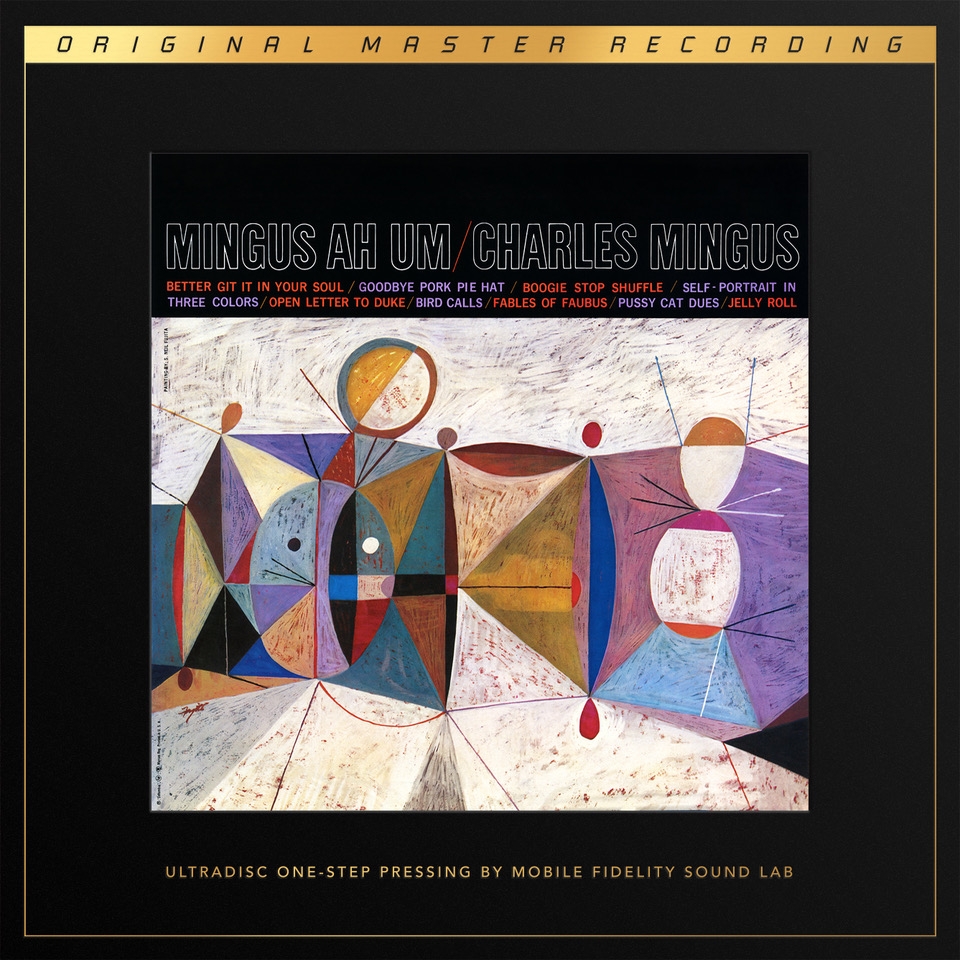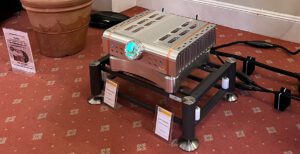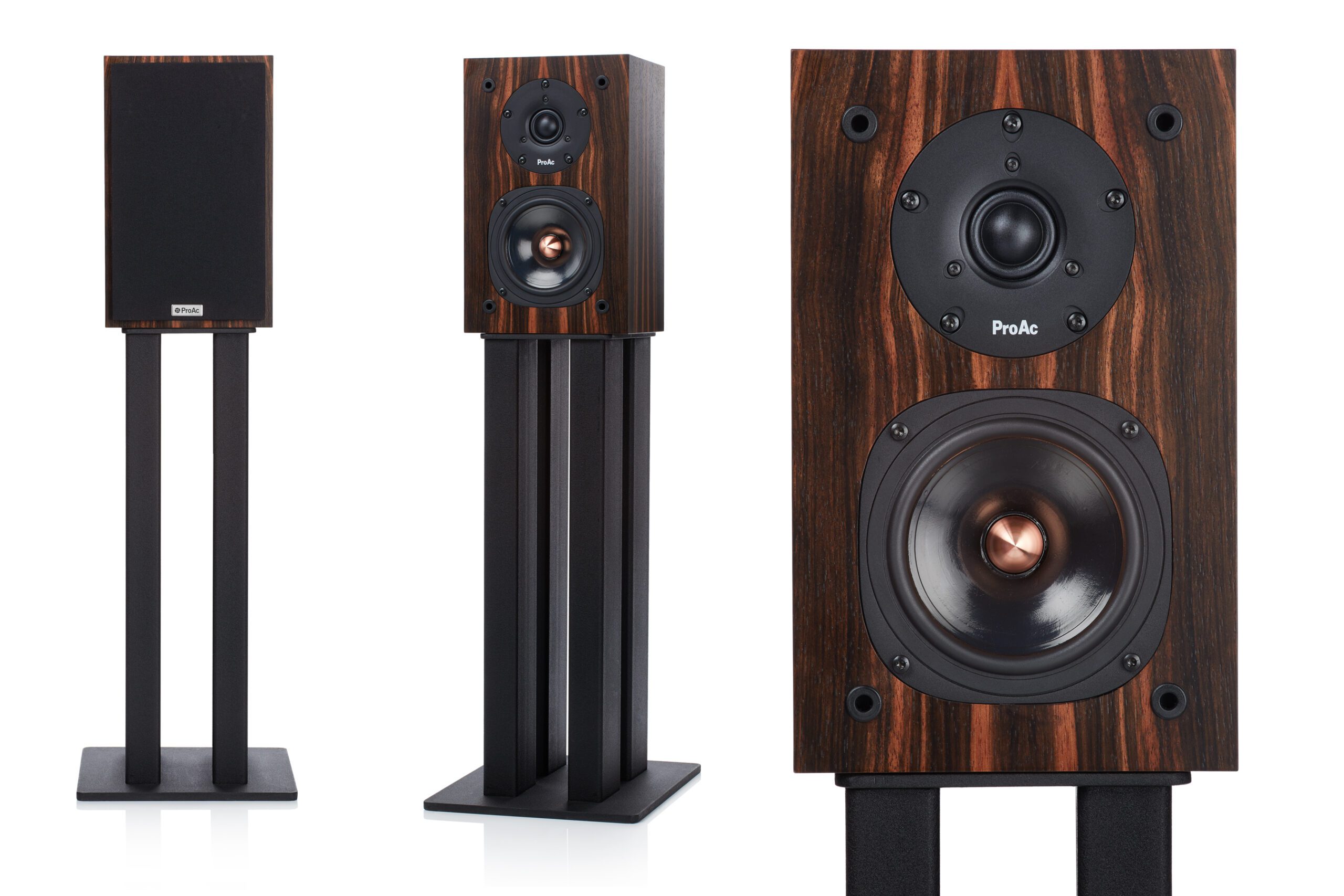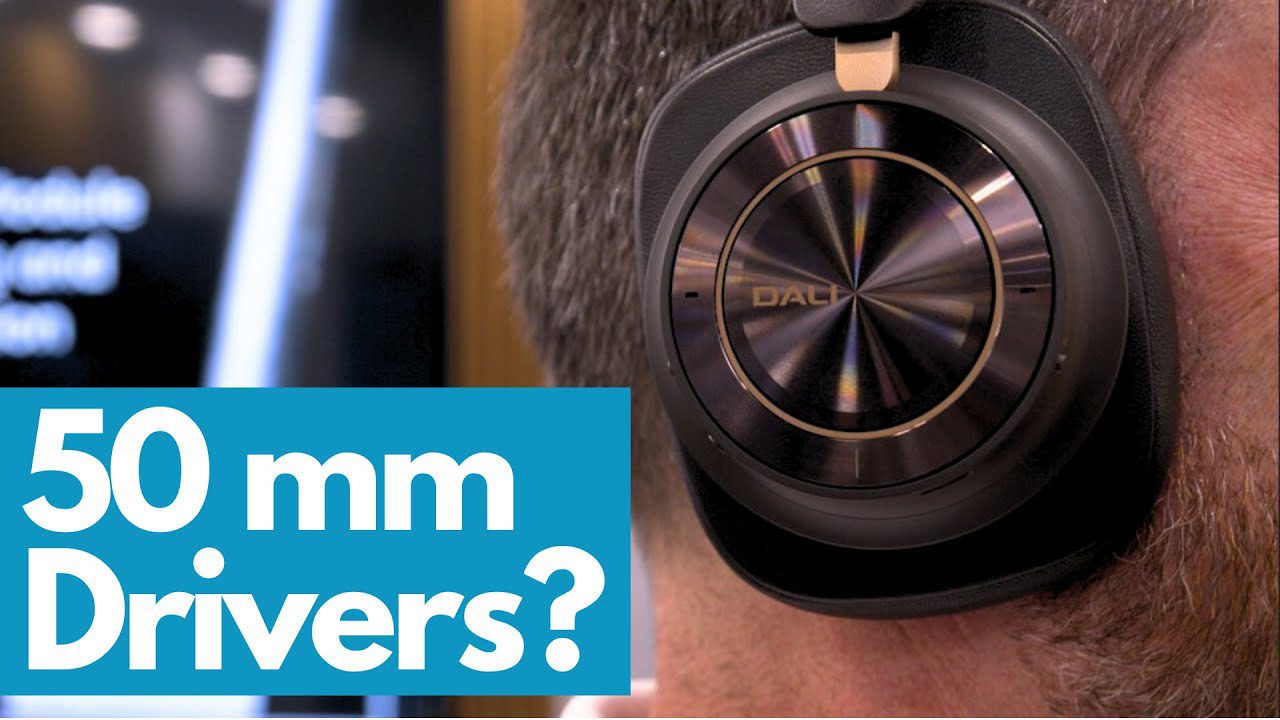
Mingus Ah Um, Mobile Fidelity’s latest Ultradisc One-Step release, like most of the prior One-Steps, the music needs little introduction. If you have any passing interest in jazz music you’ve heard the music countless times. From an audiophile perspective, it’s the best-known Mingus recording because it’s not only a musical masterpiece, but one of the finest jazz recordings made during the golden age of recording. It is limited to 6,000 copies, and it might possibly be sold out by the time this reaches print. If you already have yours, you have arguably the best combination of great music and improvement in sound quality yet released in the One-Step series. If you lingered too long, expect to pay scalper’s prices for second-hand copies.
Mingus’ late 1950’s bands featured the greatest combinations of talent he ever assembled. With John Handy, Booker Ervin and Shafi Hadi on saxophone, Willie Dennis and Jimmy Knepper on trombone, Horace Parlan on piano and Dannie Richmond on drums, Mingus Ah Um Mingus’ amazing mix of genius is topped only by something like his Mingus At Antibes where Eric Dolphy and Ted Curson add an intriguing spark to the mix. Critics have split on rating either Mingus Ah Umor The Black Lady and The Sinner Lady as Mingus’ greatest work as a composer and recording artist. However, Ah Um is a more accessible album than 1963’s Sinner Lady on Impulse Records, and is a significantly better recording, so for audiophiles, this is the one Mingus album in every collection. It’s earthy and swings like crazy, and includes some of Mingus’ best compositions, among them ‘Better Get it in Your Soul’, ‘Goodbye Pork Pie Hat’ and ‘Fables of Faubus’. Mingus’ music from this time period was way ahead of its time. It still sounds surprisingly modern today and will never go the way of Dixieland.
Columbia’s original “6 eye” label release of Mingus Ah Um is legendary for its great sound. It was recorded in May 1959 at Columbia’s 30th Street Studio by Fred Plaut. The combination of one of history’s greatest studios, best recording engineers and most golden moments did not disappoint and remains a touchstone for the marriage of art and technology. The session’s great sound, epitomizing along with Kind Of Blue the best of Columbia sound, made the record a valuable collectable. Both Classic Records and Original Recordings Group gave it the audiophile treatment. You can debate whether either one improved on the original. Both versions were close, but near misses and neither version induced me to part with my very early first pressing. This new One-Step edition comes out of the gate swinging and does everything right. The soundstage is wider and perfectly integrated. Anyone who quibbles about whether soundstage is important needs to hear this record—few recordings better capture the placement of musicians on a stage. Perhaps, as some argue symphony halls recordings create an artificial soundstage, but in most jazz venues, you can pinpoint where each instrument resides. Dynamics are more explosive than in the original. Just listen to the drum kit on ‘Better Git It In Your Soul’. Having heard this music countless times on the original and various reissues, when the drum kit enters for a solo I literally jumped in my seat from surprise. Overall, the horn sound on this reissue makes the original sound thin by comparison. When Jimmy Knepper comes in with a solo, I spontaneously blurted out (to no one in particular), “that’s what a trombone should sound like.” I switched back to the original, and the loss of texture was apparent. Booker Ervin’s tenor sax has never been better represented on disc. His was a unique style and his tone quality was often described as hard, yet the immediacy and detail of this recording recalls some of the great Ben Webster recordings where you swear you can hear the air vibrating down the inside of the saxophone’s body. Of the eleven One-Step reissues from Mobile Fidelity, I know the music and have originals of nine (Donald Fagan and Yes not being my cup of tea). This reissue, along with Santana’s Abraxas, stands out from the crowd for its immense sound improvement over the original. It’s expensive, and hopefully a full-fledged recession has not set in by the time this sees print, but this reissue is not to be missed. I doubt there will be a finer audiophile reissue in 2020.
Tags: FEATURED
By Dennis Davis
More articles from this authorRead Next From Blog
See all
AXPONA 2024 Show Report Part One
- Apr 19, 2024

Audio Show Deluxe 2024: A photo show report
- Mar 28, 2024

Paul Messenger 1949-2024: A personal tribute
- Mar 26, 2024

Bristol Hi-Fi Show 2024: See You There!
- Feb 21, 2024










